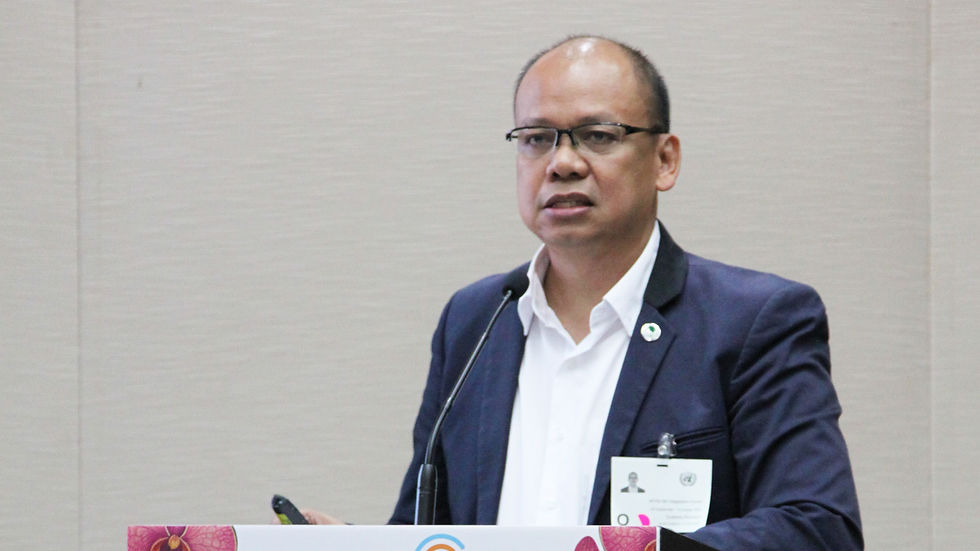Making Cities Resilient 2030 (MCR2030) Webinar Series on “Climate and Disaster Resilience Implementation in Cities: Best Practices”
- Apr 9, 2025
- 2 min read
28 March 2025
Webinar
On 28 March 2025, the Asian Institute of Technology Regional Resource Centre for Asia and the Pacific (AIT RRC.AP), in partnership with the United Nations Office for Disaster Risk Reduction (UNDRR) , ICLEI – Local Governments for Sustainability, Global Covenant of Mayors for Climate & Energy (GCOM) and the City Climate Finance Gap Fund Partnership, and the Asian Disaster Preparedness Center (ADPC), hosted a successful MCR2030 Webinar titled "Climate and Disaster Resilience Implementation in Cities: Best Practices."

The virtual event brought together over 100 participants from nearly 40 countries, including city representatives, policymakers, and resilience experts, to exchange knowledge and best practices, explore strategies, tools, and case studies on strengthening urban resilience to climate and disaster risks.

Following the welcome by moderator Armen Rostomyan, the Director of AIT RRC.AP Dr. Guilberto Borongan, officially opened the session. A compelling opening address was delivered by Mr. Taiki Kohno, Assistant Director of the Climate Change Adaptation Office, Ministry of the Environment, Japan (MoEJ), emphasizing the urgency of climate resilience in the Asia-Pacific and the importance of cross-sectoral collaboration and innovation.

The webinar featured four expert-led presentation sessions complemented by interactive Q&A segments which allowed participants to engage directly with the speakers for deeper insights on approaches for implementing resilience strategies in cities. The event concluded with closing remarks from Mr. Huno Solomon Kofi Mensah, Head of the Climate Change Cluster at AIT RRC.AP, who thanked all partners and participants and called for continued collective action to accelerate urban climate resilience across the region.
📈Feedback
"In Vanuatu, I actively contributed to a project focused on enhancing community preparedness, adapting to the challenges posed by climate change, and responding effectively to disasters. As part of this initiative, we retrofitted buildings in communities to serve as emergency shelters during disaster evacuations. However, our efforts were hindered by the lack of advanced tools, such as FloodS. Now that we are aware of this tool, we can utilize it to ensure that designated evacuation centers in our communities are situated in areas with a low risk of flooding, thereby improving safety and resilience during crises." --Benneth Bue, Vanuatu Christian Council, Vanuatu
"Thank you very much for the presentations from all speakers. They were informative and useful." --Kah Hock Tan, Hong Lip Energ Works Pte Ltd, Singapore
"Great and insightful discussion, and our hearts go out to the cities experiencing difficulties." --Chris Obi Okeke, CFLS, Nigeria
"Very excellent presentations! Thank you to the organizers for educating us. We look forward to more. --Dr Abbas Garba Idriss, Aygee and Hazards Consulting Ltd, Nigeria


